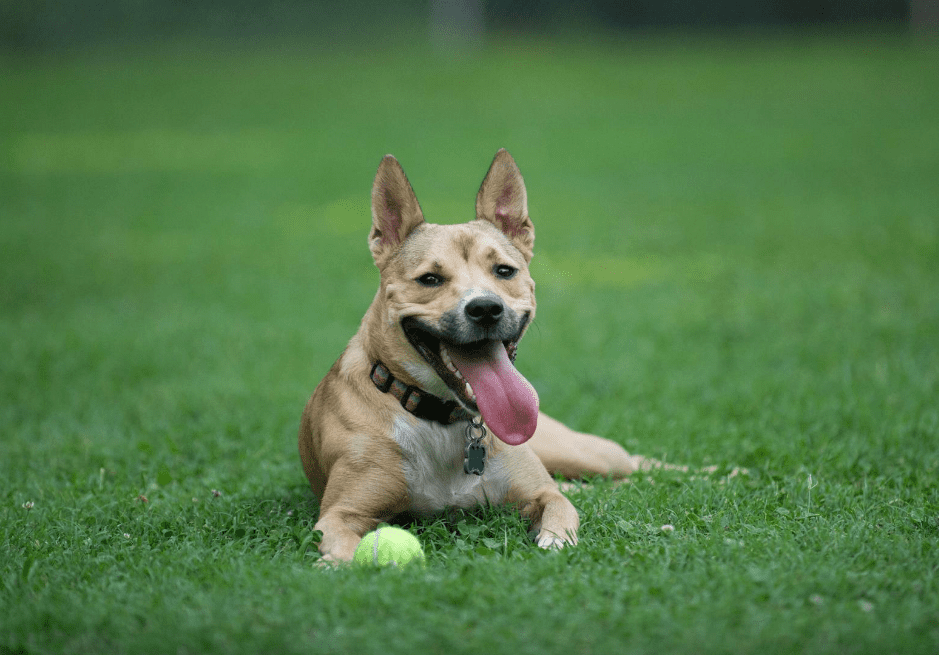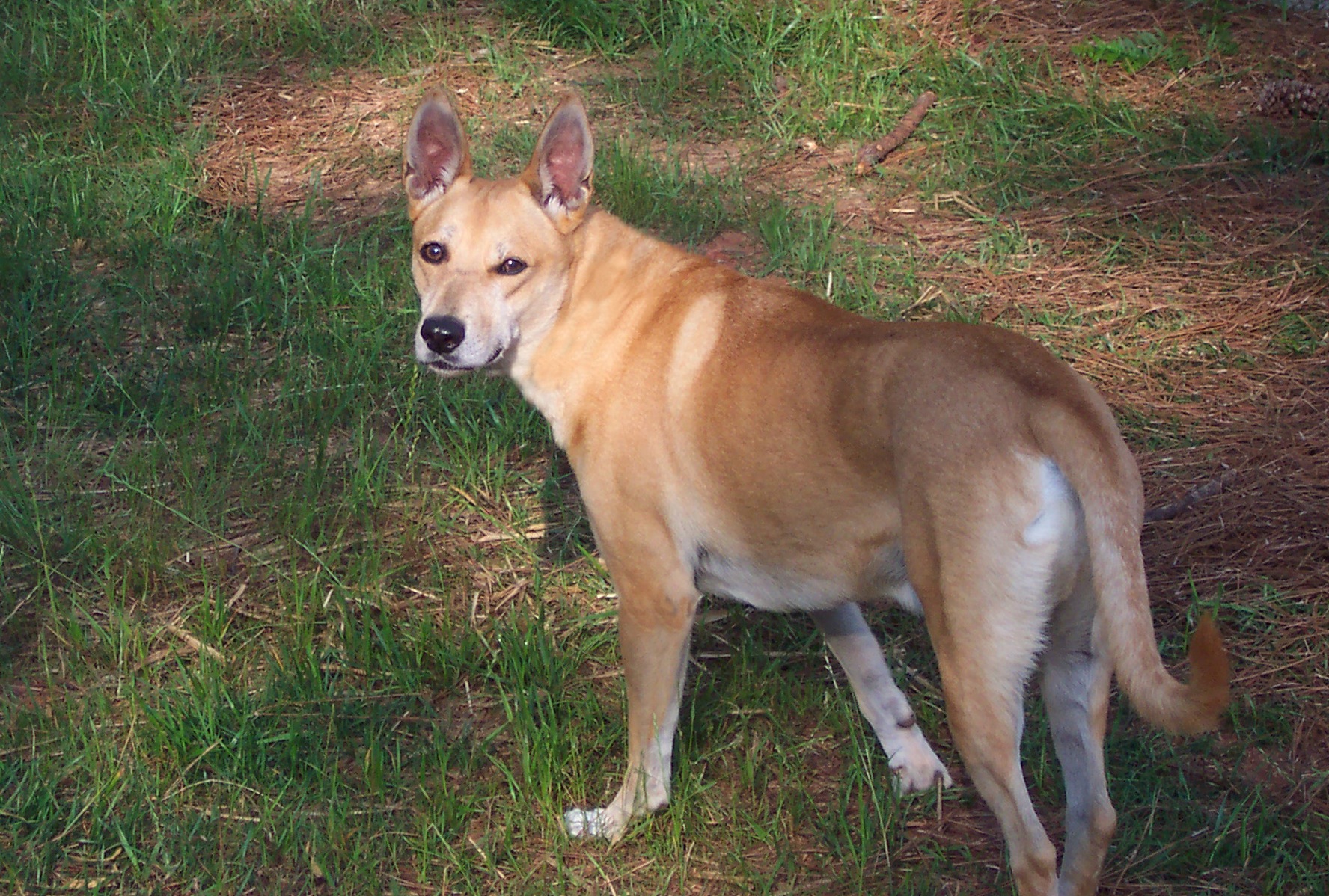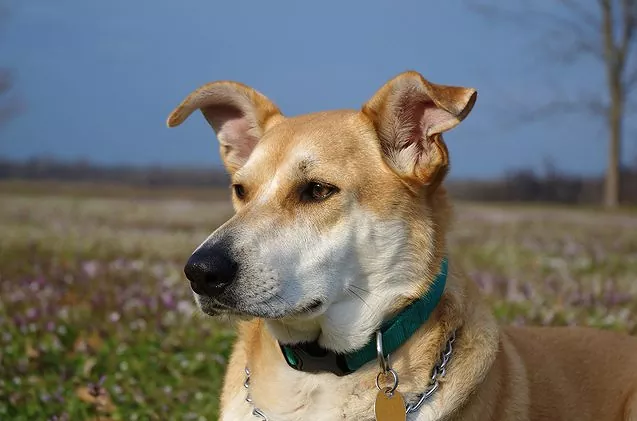Carolina Dog: America’s Wild and Primitive Southern Hound

History of the Carolina Dog
The Carolina Dog, also known as the American Dingo or Dixie Dingo, is a primitive breed that roamed freely in the southeastern United States for thousands of years. Believed to descend from ancient pariah dogs that crossed into North America with early human migrants, the breed lived in the wild and adapted to survive in the swamps and forests of the Carolinas, Georgia, and Alabama.
In the 1970s, Dr. I. Lehr Brisbin, a research ecologist, discovered these wild dogs living in isolated areas. Intrigued by their unique traits and behaviors, he studied and began the domestication of the Carolina Dog. Today, the breed is recognized by the United Kennel Club (UKC) and holds a special place in American canine history.
Popularity of the Carolina Dog
Though still relatively rare, the Carolina Dog has gained attention for its intelligence, survival instincts, and primitive beauty. It is especially popular among outdoor enthusiasts, researchers, and those seeking a deeply bonded, natural companion.
Physical Traits of the Carolina Dog
The Carolina Dog is a medium-sized, athletic breed with a natural and wild appearance, similar to pariah dogs seen in parts of Asia and Africa.
• Coat: Short to medium-length, dense and smooth, with a seasonal undercoat.
• Colors:
o Most commonly ginger or buff, but also seen in red, cream, black and tan, or piebald.
o Often has white markings on the chest, tail tip, and feet.
• Size:
o Height: 17–24 inches (43–61 cm).
o Weight: 30–55 lbs (14–25 kg).
• Head & Expression: Wedge-shaped head with erect ears and almond-shaped eyes, giving a keen, alert expression.
• Ears: Upright, large, and highly mobile.
• Tail: Long and curved, often carried in a fishhook shape when relaxed.
• Body: Lean, muscular, and built for endurance and agility.
Behavioral Traits of the Carolina Dog
The Carolina Dog is highly intelligent, cautious, and deeply loyal, with many instincts intact from its time in the wild.
• Reserved but Loyal: Wary of strangers but devoted to its family and pack.
• Extremely Intelligent: Observant, quick to learn, and known to problem-solve independently.
• Independent Thinker: Will make decisions on its own—not always obedient in the traditional sense.
• High Prey Drive: May chase small animals if not trained properly.
• Pack-Oriented: Bonds strongly with its household but may be shy around unfamiliar people.

Why Choose a Carolina Dog?
For those looking for a natural, intelligent, and loyal canine companion, the Carolina Dog offers something truly unique.
• Perfect for Outdoorsy Owners: Thrives in environments where it can run, explore, and use its instincts.
• Strong Bonding: Forms a deep connection with its people once trust is built.
• Natural Watchdog: Alert and aware of its surroundings without being overly aggressive.
• Primitive Beauty: Offers the allure of wild ancestry in a manageable domestic form.
• Low Maintenance: Requires minimal grooming and has strong natural health.
Caring for Your Carolina Dog
The Carolina Dog requires patience, socialization, and a natural lifestyle to flourish as a companion animal.
• Socialization:
o Needs early and ongoing exposure to people and environments.
o Can be shy or aloof if not well-socialized.
• Training:
o Responds best to positive reinforcement and relationship-based training.
o Harsh methods may backfire due to their sensitive and independent nature.
• Exercise:
o Needs daily outdoor activities, hiking, or running to stay balanced.
o Not suited for sedentary homes.
• Grooming:
o Weekly brushing helps with seasonal shedding.
o Otherwise, grooming is minimal.
• Nutrition: A balanced, natural diet supports their hardy constitution.

Health Considerations
The Carolina Dog is considered a naturally healthy breed due to its survivalist heritage, but owners should monitor:
• Hip Dysplasia: Though rare, can occur—screening is advised.
• Shyness or Reactivity: Needs consistent and gentle socialization.
• Parasite Sensitivity: Dogs from feral populations may require vigilant parasite control.
• Dental Care: As with all breeds, dental hygiene is important.
Comparisons to Other Primitive Breeds
Compared to the Basenji, the Carolina Dog is larger, more reserved, and more versatile in climate adaptation. Unlike the Shiba Inu, which is more stubborn and alert, the Carolina Dog is softer-tempered but requires just as much socialization.
Its behavior and look are also similar to Southeast Asian pariah dogs, but it has been domesticated for companion life while retaining much of its wild edge.
Is the Carolina Dog Right for You?
The Carolina Dog is perfect for dog lovers who want a natural, intelligent, and deeply loyal canine. If you enjoy a strong bond, outdoor adventures, and an independent-minded dog, the Carolina Dog will be a rewarding choice.
However, if you’re looking for a highly sociable or overly obedient breed, this dog may require more patience and adaptability than expected.
Ready to Welcome a Carolina Dog?
United Pet Club is here to help you find the perfect Carolina Dog companion. Whether you're looking to adopt a rescue or connect with ethical breeders, we offer the resources and guidance you need.
Explore our platform to learn more about the Carolina Dog’s care, temperament, and history. Contact United Pet Club today to start your journey with this uniquely American primitive breed!
